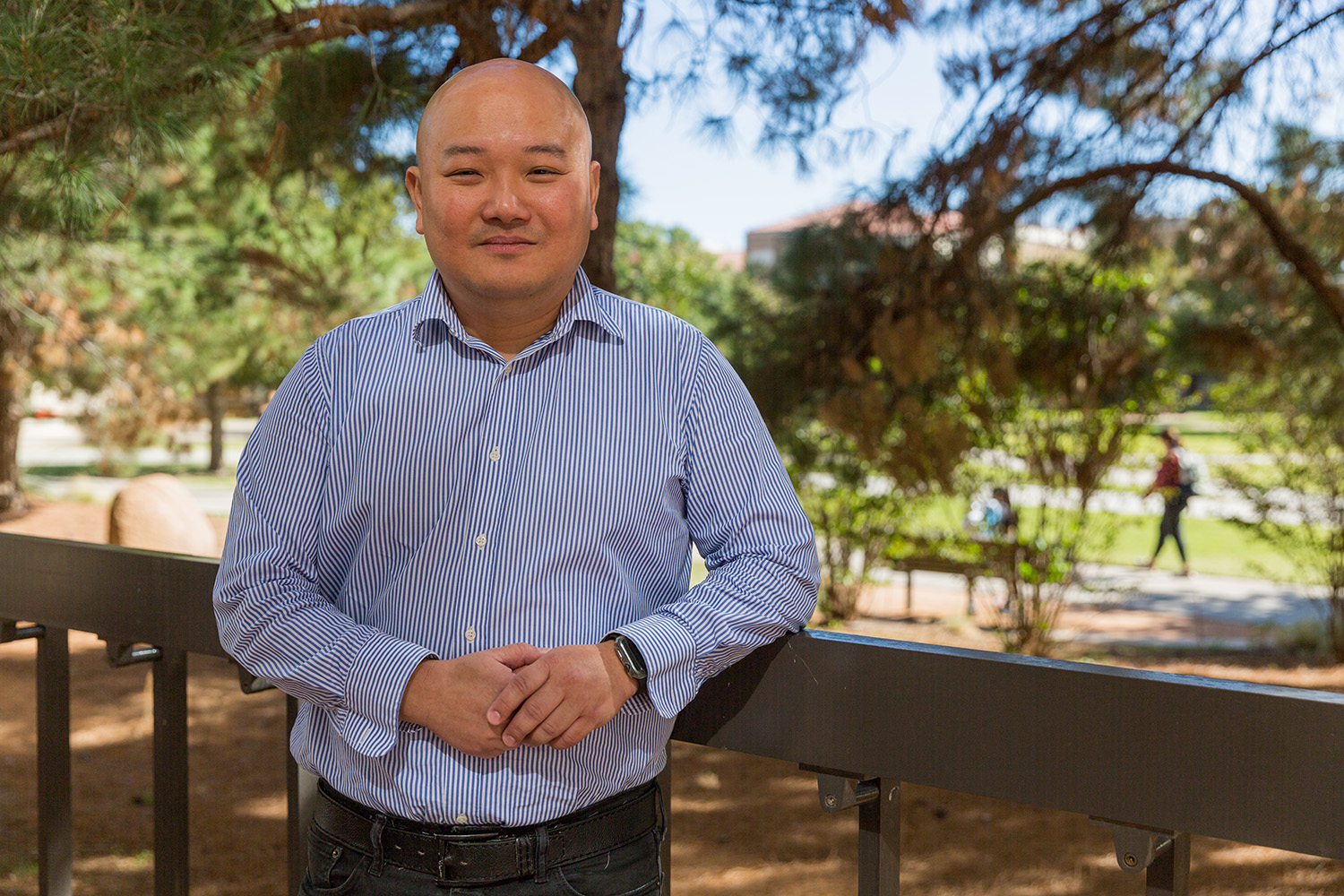
Kerk Kee, Ph.D., an associate professor of professional communication, was named a 2022 Outstanding Researcher by the Office of Research & Innovation. Kee's research agenda includes multiple grants from the National Science Foundation (NSF), which he uses to study the diffusion of innovation and information in a variety of fields.
In Kee's theoretical framework, diffusion refers to the “spread of something” while innovation has been defined as “a new technology, a new behavior, a new idea, a new piece of information, or anything that's perceived as new to potential adopters.” With this definition, Kee seeks to further understand adoption rates (or the diffusion) of innovations in health communication, organizational communication, and the many fields of science, technology, engineering, and mathematics (STEM).
“Certain innovations in these fields are responsible for things such as the prediction of the Higgs boson particle,” says Kee. “The tools of cyberinfrastructure allow researchers to harness big data in more efficient ways, also seen in the 2013 Nobel Prize for chemistry.”
Although Kee is not operating particle colliders or developing multiscale models of complex chemicals, his research is concerned with the tools behind the discoveries – the diffusion of innovation.
“There are a bunch of innovations and new information out there,” says Kee. “Something new is happening all the time. I want to characterize the innovations into two types. On the one hand is those that will do good to society, while the other hand is unhealthy behaviors that can damage society such as fake news or misinformation.”
In his studies, Kee has observed the negative side of diffusion receives more attention, such as the divided debate surrounding vaccines. However, he hopes to bring more light to the positive side of diffusing innovations and information.
“My ultimate interest is in identifying innovations, information, and behaviors that can promote something good,” says Kee. “By doing this line of research with my students and colleagues, we can hopefully contribute some kind of social good.”
For example, Kee began a research question concerned with water conservation in West Texas, specifically aimed at farmers in times of drought. Technological innovations suggest farmers can make better use of their water by strategically watering certain areas when needed, rather than a consistent, unified watering of all crops at once. This practice is referred to as “precision agriculture” and is achieved by placing sensors among crop areas. As promising as the innovation seems, the diffusion of ideas and technology takes time and convincing.
How can farmers trust the technology? Will they lose any money? Will their yields remain consistent? What if the technology fails?
Each is a valid question causing farmers concern for their way of life if they decide to adopt the precision agriculture. Researchers like Kee hope to ease the process of transition and validate the beneficial innovations.
“If you just tell them ‘Do this, do that,' they're going to ask you ‘Why?'” says Kee. “They're going to have concerns. Oddly enough, there's also a phenomenon suggesting if you tell someone to do something, they will do the opposite.”
Despite the ticks of human nature, Kee pursues results.
“What we found is, you need to combine communication strategies to promote the adoption,” says Kee. “First, you must provide farmers with evidence of drought or water issues, then you must provide them with tips and strategies, which are often the innovations under question.”
Kee continues to investigate water conservation by teaming with faculty outside the College of Media & Communication to see what would help facilitate adoption rates.
Kee's research award follows closely on the recent announcement of Associate Professor Bryan McLaughlin, Ph.D., receiving the Chancellor's Council Distinguished Research Award, continuing a profound streak of research accolades for the college.
Kee would like to thank all his doctoral students, master's students, and faculty peers for their support and assistance in his numerous projects.
Photo courtesy of Texas Tech Communications & Marketing
